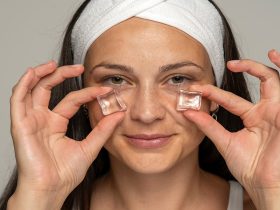When someone says that they’ve been diagnosed with Obsessive-Compulsive Disorder (OCD), what they’re telling you is that they’re obsessed with something, act compulsively, or frequently they do a combination of both of these things. Typically, these obsessions take the form of unwanted yet recurrent thoughts. (It’s important to note that you don’t necessarily have a mental disorder just because you have intrusive thoughts.) These thoughts have a huge impact on a person’s life for a variety of reasons (e.g., you see them as dangerous or immoral, and you worry that you’ll need to act upon these thoughts). There are a few other things that you should also know about OCD.
Those with obsessive-compulsive disorder experience many different, “unique” thoughts.
Unfortunately, the more time someone spends worrying about their thoughts, the more of these types of thoughts they’ll find themselves experiencing. These thoughts vary from person to person, but here are some examples of what these thoughts can be about:
- Becoming ill from the germs that are around them
- Forgetting to do something important (e.g., lock the door, turn the stove off)
- Losing control of themselves (e.g., hurting someone, driving their car off of the road)
- Going crazy (e.g., committing a crime, purposefully harming themselves, causing a scene)
Once again, it’s important to understand that these thoughts can be associated with other types of mental disorders as well.
People with this mental disorder have certain obsessions.
Researchers have discovered that people who have obsessive-compulsive disorder suffer from common types of obsessions. These include:
- Excessive concern with symmetry and order
- Fear of being harmed (e.g., an electrical outlet is going to catch on fire, the doors aren’t locked) or harming someone you love (especially your children)
- Unwanted religious thoughts (e.g., thinking that they’re being blasphemous)
- Being obsessed with their body (e.g., how they look to themselves, what others think about how they look)
They also have certain compulsions that go along with this mental disorder.
Just like people with obsessive-compulsive disorder have similar obsessions, they also have similar compulsions. To better understand these compulsions, it’s important to understand what compulsion is. A compulsion is defined as a response that a person uses to help them cope with an obsession. These can be either overt or mental actions. Some of the most common ones for people with OCD include:
- Checking on something
- Continually counting items
- Repeatedly cleaning or washing themselves or their environment
- Ensuring that things are placed in a specific order
- Repeating special prayers or words
The good news is that treatment is available for obsessive-compulsive disorder.
According to research, there’s an element of biological predisposition to this mental disorder. Unfortunately, OCD is problematic because some of the coping mechanisms people use only make their problems worse. Some of the things that you should watch out for here include the following:
- Emotional reasoning: This happens when someone becomes anxious regarding an activity they do each day. To deal with this anxiety, they resolve that they’ll do the activity an extra time each day.
- Thoughts of going crazy: Unfortunately, the behaviors that people use to deal with their unwanted thoughts or to make themselves feel better to tend to make them feel like they’re going crazy. This only makes them feel even more anxious.
- Impaired memory: The more frequently you check something, the worse your memory becomes regarding whether you checked it. This also happens when you try to block out intrusive thoughts.
- Interpersonal stress: Frequently, these obsessions and compulsions that are associated with this mental disorder interfere with work and relationships, which only exasperates the stress.
If you or someone you love is suffering from a mental disorder such as obsessive-compulsive disorder, contact us at the Advantage Mental Health Center in Clearwater, FL, today.






